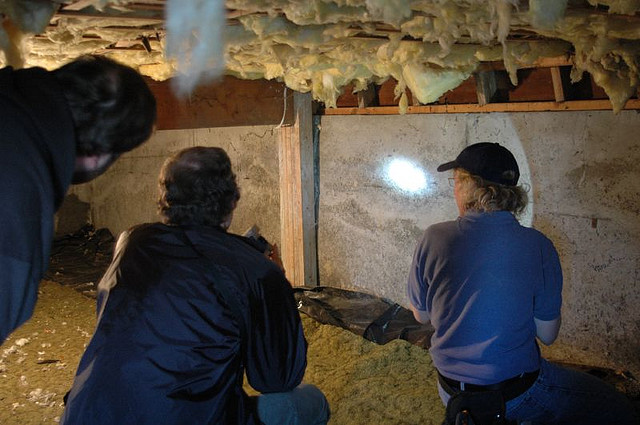When selling your home turns into a nightmare
 Photof courtesy
Photof courtesy
There’s a common misconception that selling a home is supposed to provide a healthy profit. Houses are investments, after all.
But the reality is not so simple.
Homeowners who choose to sell their houses through traditional channels often watch as profits and years of equity are wiped out by expense after expense, starting at the moment they list the house and continuing through the closing process. It’s even more difficult for owners of older or distressed houses, who frequently have to spend top dollar just to have the house pass inspection.
When can selling your home turn into a nightmare? It can happen often.
During listing
 Photo courtesy
Photo courtesy
Staging the house. It’s not just about moving the clutter into a closet as you leave for the day. Nowadays, home buyers expect houses to be professionally prepared.
That means painting walls, fixing blemishes in the interior and thoroughly cleaning. Have a cracked tile? It needs to be replaced. Have pets? The smell can turn off some home buyers and cause others to offer significantly less than asking price.
Rooms need to be staged. That means rearranging and purchasing new decorations to build an appealing flow as prospective buyers tour your house.
Outdoor improvements. Windows need to be washed, and the yard needs to be immaculately maintained. If the exterior of your property hasn’t been landscaped or your plants are becoming overgrown, it will need improvements.
First impressions are lasting ones, and if buyers are already turned off before they even step onto your property, it can lead to your house sitting on the market for extended periods of time.
And that leads to the next headache.
The house sits on the market. As most real estate agents will tell you, your house will get the most attention in the first few weeks. That’s when it’s on the top of most agents’ listing screens and it’s front and center on real estate websites.
For whatever reason — be it the down economy, an issue with the house or a difficult neighborhood — a house can sit on the market. As time passes, the listing will get fewer and fewer views, and even in today’s difficult real estate market, if your house has been out there for a while, buyers will begin to wonder why.
At that point, your only options are to take it off the market or reduce the asking price.
Lights, heat, cooling and extra homeowners insurance. If you plan to move out and allow the house to sit vacant while on the market, expect to pay double your regular utilities.
Buyers do not want to walk into a house that’s dark or at an uncomfortable temperature. It sounds silly, but those are things that can greatly influence the way a prospective buyer subconsciously feels about your house. We all want a warm, cozy, inviting home.
Additionally, if your house is sitting vacant, it likely won’t be covered under your home insurance policy. You might have to purchase an additional rider to cover the period your home is empty.
Pre-inspection reports. These aren’t a necessity, but for homeowners who have held on to properties for years and years, they can prevent headaches down the line.
A pre-inspection report can find issues that have crept up “under the hood,” things that aren’t necessarily noticeable but could derail the closing process later on. They allow the homeowner to fix problems before a buyer has the chance to get upset about them.
Because the inspection is traditionally covered by the buyer, the pre-inspection is another expense to tack on for owners of older properties.
At closing
 Photo courtesy
Photo courtesy
The inspection turns off the buyer. This is a big one, and it’s very common. Everything looks fine during the walk-through, but once the home inspector comes and takes a closer look at the house, it sends the buyer running.
Things like water damage, mold, roof damage, faulty electrical wiring and defective plumbing are both common and incredibly expensive to fix. Most buyers would rather keep looking than take on an extensive renovation project right after buying a house.
Closing costs. If closing goes through, expect to pay a number of fees. This includes mortgage and home appraisal, fees to the escrow company, recording and transfer of the property, homeowners’ and title insurance and several other costs.
If your home inspection turned up issues that you were not motivated to fix, this is also where the buyer can negotiate to take on those projects at your expense. For homeowners of fixer-uppers, these costs can add up.
Real estate commissions. Your Realtor has to get paid, and the bad news is so does your buyer’s Realtor. As the seller, you will likely pay the entire 5-6% commission to be split between the real estate agents involved in the sale.
Taxes. Along with death, it’s one of life’s only sure things. You might have to pay transfer taxes and capital gains taxes, depending on your location and the value of the home.
Moving costs. You have to go somewhere, right? Even after all of those expenses related simply to getting your house ready to sell, you will now likely have to plunk down cash in order to find your next home and move all of your things there.



